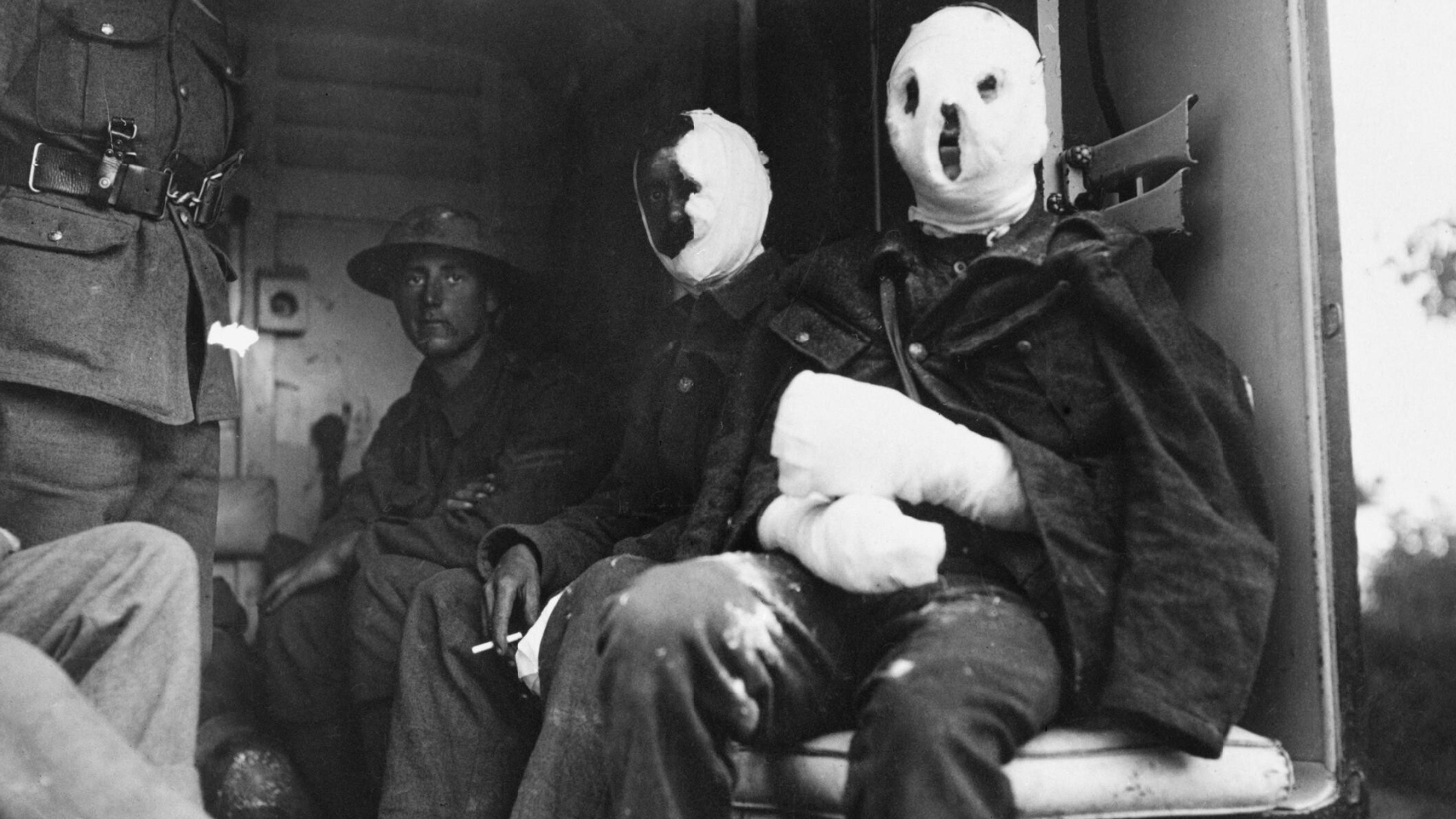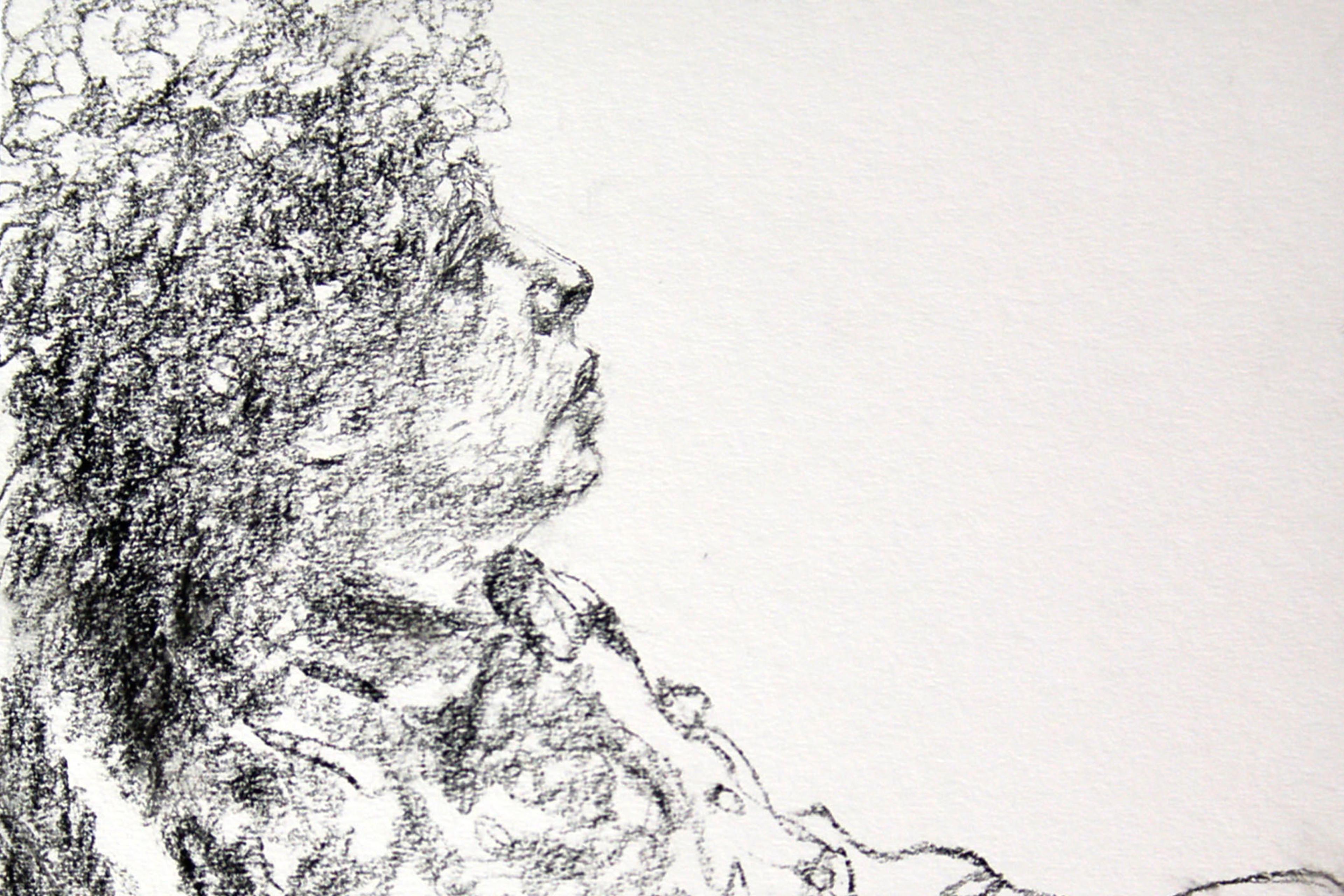What changes can a human undergo without becoming someone different? For example, if a degenerative disease paralyses your body, it’s clearly still you who exists in this transformed state. But what if the disease transforms your mind, impairing your memory or causing radical personality change? Would this new ‘you’ be a different person entirely than the one who existed before the transformation?
Part of what makes it hard to answer this question is its ambiguity. Imagine you saw my father, John, one day and then his twin brother, Joe, the next, and you pointed out Joe to me and said that you had only just seen him. I might correct you by saying that the person you see now is a different person than the person you saw yesterday. But is that the meaning we have in mind when we ask whether the person existing in the wake of a disease is a different person than the one before?
Or is it more like this: a man goes away to war, where he experiences great horrors, and on his return his family finds him to be a different person entirely than he was when he left. This is different from your confusion about John and Joe (and different from the situation if the person who showed up at the doorstep after the war happened to be an imposter). The family take for granted the continued existence of the man who left and then returned home. What troubles them is that he has changed, so much so as to be unrecognisable except in outward appearance. And the same point seems to hold in the case of the degenerative disease: if it were not you who existed in the wake of it, then your loved ones would not have cause to mourn your state in the way they do. But what, then, can we mean when we say, as we so often do, that the disease (or war, or drug taking, or divorce, or near-death experience…) has made you into a different person?
Here’s another example – imagine contemplating a life experience that will radically transform your values. The philosopher L A Paul calls this a transformative experience, such as when parents claim to have been altered fundamentally by the first sight of their newborn child. Given the prospect of such a radical change, should you allow it to happen? Perhaps you currently enjoy late nights on Saturdays and lazy Sunday brunches, while the person you’d be as a parent would enjoy – or at least profess to enjoy – lengthy bedtime routines and Saturday morning swim meets. You’d be a different person entirely! And yet it has to be you who would be this different person, or else the prospect of this change would not concern you. You’re asking yourself: is this the kind of person I should become? For someone else to find pleasure in the life of a parent may strike you as perplexing, but clearly it wouldn’t trouble you in the same way.
Some philosophers, most famously John Locke, have tried to clarify this kind of situation by distinguishing between the continued existence of human beings and that of the persons who human beings are. Locke motivates this distinction by imagining a case in which the soul of a prince is transferred into the body of a cobbler. Supposing that the cobbler now has all the essential psychological characteristics that the prince had before, would we not say that this one man (this human being) had somehow become a different person? Likewise, then, could we say of the soldier come home from war that his family’s alarm was a response to changes in the man they knew, while the person who went away no longer existed – and, likewise, that a transformative experience, or a degenerative disease, can change what person you are without thereby making you a different human being?
This solution is unsatisfactory because it treats the concept of personhood as something entirely abstract and metaphysical. Whatever else the concept of a person does for us, it has to be closely tied to our use of the words ‘you’ and ‘I’, and via these to ‘he’ and ‘she’ as well. When you consider whether to undergo a transformative experience, the question at stake is whether you should become this way or not. By the same token, there is no question that the man who returns from war owes all the same debts as the man who left, that he has committed the same deeds and is married to the same woman, and so forth. If the concept of a person is good for anything at all, it must be what stands as the basis of such judgments.
So, what then do we really mean when we say of someone that this individual is not the same person as before?
One simple answer is that we use these words to refer to a great degree of change, with a focus on those psychological traits that we deem most central to ‘personhood’. Understood this way, the point of saying that the man who returns from war is a ‘different person’ than before is to say that he differs greatly in those important respects. Likewise for a degenerative disease that transforms a patient’s personality. But the problem with this answer is that when we use ‘different person’ in the way that we are trying to unpack, we usually mean wholly different – not gradations of certain specific trait changes.
The philosopher Vincent Descombes suggests a more sophisticated answer in his book Puzzling Identities (2016, translated by Stephen Adam Schwartz) in which he highlights the distinctive way we use the language of identity. When someone tells you who she is as a person, her answer will reflect her sense of identity, speaking to something more like ‘What are you really about?’ – her goals and purposes in life – rather than ‘What is your name and where are you from?’ Our identity in this sense isn’t a ‘fixed’ quality that has been handed down to us, rather it is something we shape and determine over time. Perhaps, when we say that someone has become a different person, we mean that they would give a different account of who they are, where this has changed so radically that they now identify as someone altogether different.
There is much to be said for this analysis. But it cannot be the full explanation of what we mean by ‘same person’ and ‘different person’ because similar language is used in many other contexts without any associated change in self-identity. For example, if I bring my broken-down car to the shop and the mechanic returns it with a gleaming exterior and the engine purring, I might say that it is now a different car than the one I brought in – but of course I wouldn’t mean that I’ve been given a car that belongs to someone else. Likewise, if an author sends her manuscript to the publisher and gets it back with the plot inverted and many essential passages excised, she might say it is not the same book as the one she wrote, though without any implication that the mail got mixed up. In both cases, we used the language of ‘same’ and ‘different’ in just the way that interests us for people and personhood, but without supposing that the identity of my car, or of the author’s book, is something that those items were able to shape or determine.
Nevertheless, Descombes’s account brings us closer to answering the puzzle of what we mean by someone becoming a different person. Just as a person’s identity is a matter of what she is really about – that is, her passions that give direction to her life – we can apply this same concept to something like a car or a book: for example, asked to say what her book was really about, the author might have called it a poignant tale of lost love. (Likewise, I’d have called my car a clunker.) To say this is to make a claim about the essence of the book, or the defining thing that makes it the book it is. If, after the editor’s cut, the book reads like a beachside romance, that might be grounds for calling it a different book entirely.
So maybe this is what we are saying when we use ‘same’ and ‘different’ about a person changed by disease, war or something else. Here, talk of what you are ‘really about’ isn’t necessarily tied to the ability to decide or determine this aspect of one’s own identity – though, in the case of mature human beings, they may turn out to be closely connected: perhaps my identity, or what I am about, is in general just what I say it is. For me to become a different person, then, would be for me to become, and so to be prepared to say that I am, ‘about’ something totally different.
Recently, the philosopher and cognitive scientist Joshua Knobe and his collaborators have proposed a similar argument in admirable detail. According to Knobe, the uses of ‘same’ and ‘different’ that have been my focus here are connected to the notion of what someone or something really is – as when, for example, you say of a derivative song on the radio that there’s a sense in which it’s punk rock, but, if you think about what it means to be punk rock, you would have to say that it isn’t really punk rock at all. Behind this kind of statement is the sense that there is something essential to punk rock, or definitive of its true nature, that a song can lack, even as it embodies some of its superficial features. And maybe the changes that would make someone become a different person entirely are changes in such a dimension.
If this is correct, then what is the moral upshot of saying that someone has become a different person, whether through war, dementia or parenthood? What makes these judgments matter to us in the way that they evidently do? What is their significance in how we are to treat one another, in how we are to live?
Sometimes, the claim that someone has become a different person can be used to justify cutting them out of our lives, or treating them as if they were a mere acquaintance. This makes sense in some cases: for example, if you and a classmate once bonded over a shared love of punk rock, or a common religious conviction, then, if they were to lose this love, or this conviction, it might be appropriate for you to dissolve your friendship. In such a case, the person who was your friend is no longer ‘about’ the thing that was the ground of your relationship. Hearing from your friend how she has changed, you will find yourself asking: who are you? For the purposes of your friendship, the person that you knew is gone.
But not all human relationships are this way. A person you marry, or a parent or child or elderly relative, is not someone who is tied to you just by virtue of a shared passion or purpose. Your relation to them goes deeper than that, and its ground is your shared life. It is part of being human that people sometimes change in ways that can make a radical difference to what they are about. But our passions and purposes are not the only things that determine who we are. Our lives are also defined by the irrevocable commitments we make to our loved ones, and the ties that bind together parent, child, sibling and kin. To see ourselves, and one another, for who and what we really are, we need to recognise these aspects of our identity that are not so subject to change.








